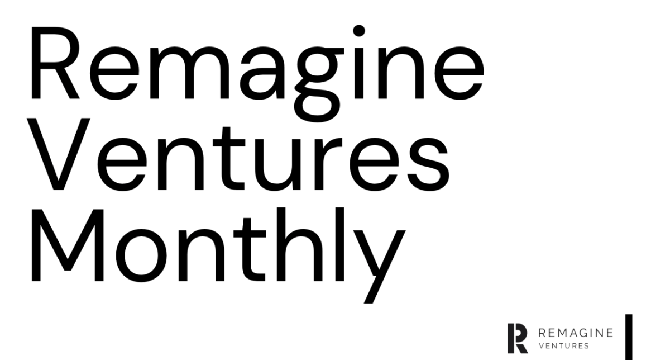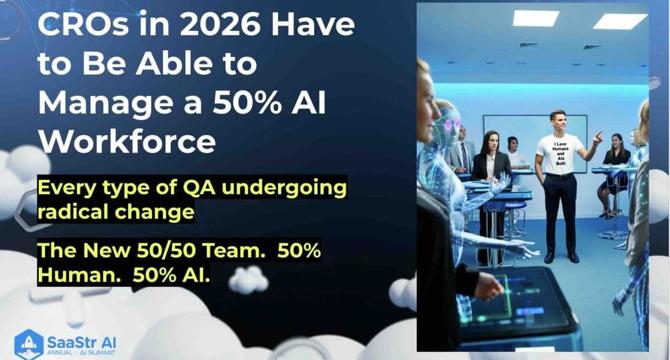Venture Capital News
Medium
200

Image Credit: Medium
Bonifacio High Street Central Park: The Green Heart of BGC
- Bonifacio High Street Central Park in BGC offers a lush green space for relaxation and outdoor activities.
- The park features well-maintained gardens, water elements, an amphitheater for live performances, and alfresco dining options.
- It is family-friendly with open spaces for kids and playgrounds for younger visitors.
- Located on 5th Avenue in Bonifacio Global City, Taguig, the park is open 24 hours a day and entry is free.
- Central Park serves as an urban oasis, providing a peaceful escape within the vibrant lifestyle of BGC.
- Visitors, whether residents or tourists, can enjoy a blend of nature and city amenities at Central Park.
- The park offers a perfect mix of wellness, entertainment, and social connections.
- Explore Central Park to experience a calming atmosphere amidst trendy restaurants and cafes.
- Central Park is an ideal spot for morning jogs, casual meetups, and relaxing moments on the grass.
- With its lush landscaping and family-friendly facilities, Central Park caters to various visitor preferences.
- Central Park stands out as a vibrant green space amid the fast-paced urban environment of BGC.
- Its strategic location in BGC makes it a convenient destination for both locals and visitors.
- Central Park at Bonifacio High Street is a must-visit to enjoy the best of nature and city life.
- Experience the blend of urban living and natural beauty at Bonifacio High Street Central Park in BGC.
- Include Central Park in your BGC itinerary to unwind, socialize, and immerse yourself in a green haven.
Read Full Article
12 Likes
Medium
88

Image Credit: Medium
Jazmyn Lee Is Reengineering Access — So Everyone Can Own Their Future!
- Jazmyn Lee, the founder of VETTED Inc., is redefining career development by focusing on underestimated talent and creating an ecosystem to empower them in both life and work.
- With a background in IT and cybersecurity, Jazmyn recognized the need for empathy, access, and true inclusion in professional spaces, leading her to establish VETTED.
- VETTED offers career coaching, capital navigation, and co-creation models to embed equity into the system itself, ensuring it serves everyone.
- Jazmyn's approach prioritizes aligning purpose with pathways and humanizing opportunities to ensure the future of work is inclusive and intentional.
- Her efforts represent a justice-centered mission that aims to change not just the narrative but also the storytellers.
- Jazmyn Lee's work highlights the importance of designing systems with conviction to empower individuals historically overlooked in the workforce.
- The initiative emphasizes creating opportunities that reflect the real needs of people and building a system that was always intended to serve everyone.
Read Full Article
5 Likes
Medium
40

Image Credit: Medium
Venture Capital Challenges No One Talks About and the Misleading Glamor
- Early-career VCs face challenges in deal sourcing, networking, and recognition within the industry.
- Breaking into venture capital is difficult due to limited open roles and the significance of networks and value contribution.
- Junior VCs struggle to establish credibility and influence investment decisions due to hierarchy and power dynamics within firms.
- Success in VC demands patience, navigating power dynamics, and understanding the long-term nature of investments.
- Venture capital requires independent work, personal hustle, and a focus on networking and relationship-building externally.
- The career path in VC is not uniform, with power concentrated at the top and challenges for junior team members to advance.
- Building trust, establishing credibility, and finding a niche are crucial for success in venture capital.
- Success in VC is a long game that requires consistency, patience, and adaptation to the ever-changing market conditions.
- VC is about more than just picking startups; it involves earning trust, network-building, and trend shaping.
- Investors in venture capital must remain unfazed by challenges, setbacks, and uncertainties to build a lasting and successful career.
Read Full Article
2 Likes
Medium
386

Image Credit: Medium
The LPs Guide to Choosing the the Right VC Fund Size
- Choosing the size of a VC fund you invest in affects risk, return, and portfolio alignment.
- Small-cap funds focus on seed and early Series A investments with potential for high returns.
- Mid-cap funds balance early-stage investments with follow-on rounds for growth.
- Large-cap funds operate across all investment stages, emphasizing consistent returns and downside protection.
- Investors can align fund size with return goals, risk tolerance, and capital deployment needs.
- Different fund sizes offer varying levels of risk, growth potential, and liquidity paths.
- Selecting the right fund managers is crucial for maximizing returns and managing risk.
- Access to top-performing funds may require relationship-building and sector expertise.
- A diverse portfolio across small, mid, and large-cap funds can optimize returns and stability.
- Investors should tailor their VC fund selection based on goals, constraints, and risk preferences.
Read Full Article
23 Likes
Saastr
142

Image Credit: Saastr
Databricks Just Caught Snowflake at $3.7B ARR. Here’s How They Did It (And What’s Next)
- Databricks reached a $3.7B revenue run-rate this quarter with 50% YoY growth, becoming the fastest-growing infrastructure company in the public software universe.
- Key factors contributing to Databricks' growth include $1.2B in net new revenue this year, 80%+ subscription gross margins, and 140% Net Revenue Retention.
- Their AI-focused products like Databricks SQL and AI/ML Platform are driving significant revenue growth, with 50% of customers using 6+ products.
- Databricks is outpacing Snowflake with a 50% growth rate compared to Snowflake's 29% growth, adding around $800M more in net new revenue annually.
- The market implications include Databricks reshaping the infrastructure market with its 'Lakehouse' architecture, infinite demand for AI infrastructure, and strong platform effects.
- Competitors like Snowflake are responding, while investors are witnessing potentially the largest infrastructure company emerge.
- Databricks' growth trajectory since 2019 shows significant acceleration, positioning them to surpass Snowflake's ARR and dominate the infrastructure market.
- Databricks is not just dominating today but also preparing for a bigger tomorrow, with a strong emphasis on AI-driven competitive advantage.
- The article highlights Databricks' exceptional growth, strategic advantages, and industry implications compared to competitors and investors.
- Databricks' success signifies a shift in data infrastructure perception from a cost center to a foundation for AI-driven competitive edge in the market.
Read Full Article
8 Likes
Medium
391
Image Credit: Medium
Buying behaviors are changing — it’s social first
- Buying behaviors are evolving, with product discovery and purchasing moving towards social media and social search.
- Instagram is investing in improving search experiences to compete with TikTok.
- Over 75% of Gen Z is discovering products through social media rather than search engines.
- Social search results are different from traditional search engines, with visuals dominating feeds.
- Engaging and converting customers through social media is challenging for brands.
- Nectar Social is introduced as an AI-native social commerce platform to help brands scale and monetize social interactions.
- The platform aims to drive revenue at scale and enable conversational commerce.
- The founders of Nectar Social, Misbah Uraizee and Farah Uraizee, are former Meta leaders experienced in the social eCommerce landscape.
- Top brands like Olipop and Jones Road have shown interest in partnering with Nectar Social.
- AI technology is used by early adopters of Nectar Social to scale engagement and enhance conversion rates.
- Social eCommerce is projected to grow to $140 billion by 2027.
- Nectar Social is positioned to lead the transformational shift towards social-first buying behaviors.
- The platform aims to address the changing landscape of consumer behavior by focusing on personalized and authentic community management.
- Nectar Social is designed to help brands track and measure revenue from social media interactions.
- The platform enables brands to engage in relevant conversations and drive higher customer conversion rates.
- For brands adapting to social-first buying habits, Nectar Social offers a strategic advantage in the evolving market.
Read Full Article
23 Likes
VC Cafe
217

Image Credit: VC Cafe
Remagine Ventures Monthly Pulse
- Despite challenges in Israel, startups display resilience and continue to innovate and deliver products and fundraising.
- Remagine Ventures announces new investments and provides updates from their portfolio companies like Hour One, Minute Media, Vault AI, Munch, echo3D, Keewano, Storywise, and TruLux AI.
- Their blog covers topics such as building startups in the AI age, AI wrappers, marketing in stealth mode, and requests for startups in 2025.
- They also discuss gaming industry trends, Israel's position in AI, and the importance of staying focused despite funding.
- The newsletter highlights the #FIRGUN newsletter by Eze Vidra, Mary Meeker's report on AI, the Stealth 2025 report on startup founders, and the Global Tech Index 2025 placing Israel highly in the startup ecosystem.
Read Full Article
13 Likes
Medium
75

Image Credit: Medium
Health System Guide to Health AI Investing. Part 1: Entrepreneur Quality
- Healthcare AI investing success depends on founder quality over capital, technology, or partnerships.
- Entrepreneurs in healthcare AI must possess execution maturity and multidomain fluency for success.
- Key traits for successful healthcare AI entrepreneurs include trust engineering, regulatory fit design, and operational flexibility.
- The shift to RIA-enabled VC models may bring more comprehensive structures, but requires skilled operators to succeed.
- Scaling AI in healthcare demands multi-stakeholder go-to-market strategies beyond physician-to-physician sales.
- Institutions now seek integrated assurance for AI solutions, combining regulatory, technical, clinical, and risk expertise.
- The Trustworthy Technology and Innovation Consortium (TTIC) focuses on safe, scalable, and standards-aligned clinical AI.
- TTIC emphasizes accountability, integrity, innovation, collaboration, and excellence in transforming healthcare AI.
- The consortium offers guidance and strategies for AI systems that can withstand pressure and improve in healthcare settings.
- TTIC targets proactive, infrastructure-first leadership in healthcare AI adoption and implementation.
Read Full Article
4 Likes
Medium
195

Image Credit: Medium
The Death of the Start-up Ecosystem?
- AI 2027 predicts a scenario where AI systems will advance to recursively improving themselves by 2027, leading to potential extinction for the current startup ecosystem.
- The traditional SaaS startup playbook may become obsolete if AI continues on its projected trajectory.
- The AI revolution is anticipated to erase the middle class of innovation, leading to a collapse of the Innovation Pyramid.
- Technology has been structured like a pyramid with big tech giants at the top, startups in the middle, and individual contributors at the bottom.
- AGI-fueled automation and acceleration are expected to flatten the Innovation Pyramid, rendering many layers irrelevant.
- In a future where intelligence is integrated into infrastructure, startups without massive distribution, proprietary data, or regulatory capture may struggle to compete.
- The speed and scrappiness that once defined startups may no longer be advantageous in a world dominated by AI.
- Feedback loops and user behavior data will be controlled by tech giants leveraging new AI capabilities, potentially impacting SaaS products.
- Venture capital dynamics are likely to change significantly as AGI diminishes the importance of time, capital, and talent traditionally required for value creation.
- VCs may shift towards funding foundations and platforms for AI agents, affecting startup funding opportunities.
- Winners in this changing landscape will likely be platforms with deep integrations, strong user bases, proprietary data, and tools that empower AI agents.
- Adapting to the AI-driven future requires a shift in mindset from building traditional startups, as AI represents a significant civilizational shift beyond mere technological advancements.
- The year 2027 is portrayed as a critical period where the traditional startup model may become extinct in the face of AI evolution.
Read Full Article
11 Likes
Medium
413

Image Credit: Medium
The Crisis of Leadership in Gaming
- The article discusses the crisis of leadership in the gaming industry, highlighting how the pandemic created a false sense of permanency in gaming trends.
- It delves into the misconception of the 'metaverse' concept and the industry's miscalculations in adapting to post-pandemic realities.
- The emphasis is on how gaming executives failed to grasp the shift from 'attention abundance' to 'attention scarcity,' leading to mismatches between supply and demand.
- The article critiques the industry's focus on AAA productions and metaverse investments, neglecting the evolving preferences for shorter, more accessible gaming experiences.
- It underlines the need for real leadership in the gaming sector, addressing structural issues and aligning strategies with market demands.
- The piece warns of the consequences of prioritizing short-term gains over long-term value creation, emphasizing the importance of community, connection, and meaningful gaming experiences.
- It discusses how the gaming industry's current trajectory risks losing relevance and trust due to unsustainable customer acquisition costs, reliance on high-spending users, and a lack of indie innovation pathways.
- The article advocates for a shift towards local infrastructure ecosystems that prioritize real human connection, as opposed to excessive monetization and neglect of community-building.
- It draws parallels with the evolution of Hollywood and stresses the need for the gaming industry to rekindle its soul, focusing on community, creativity, and inclusive experiences.
- The conclusion calls for a recalibration in gaming leadership, urging stakeholders to prioritize player-centric values and reshape the industry's future with humility and vision.
- Overall, the article serves as a critical reflection on the state of the gaming industry, urging for a shift towards more holistic, community-driven approaches to secure its long-term sustainability.
Read Full Article
24 Likes
Medium
124

Image Credit: Medium
Sustaining the post-COVID-19 healthcare growth in Nigeria.
- Nigeria's post-COVID-19 healthcare growth raises concerns about financial and operational sustainability.
- Hospitals grapple with maintaining costly infrastructure, lack of funding, high operational expenses, staffing shortages, and affordability challenges.
- High turnover of medical staff due to better opportunities abroad leads to overworked remaining staff.
- Nigerian hospitals spend a significant portion of operational costs on power, facing fuel price hikes and electricity cost increases.
- Inflation adds to financial woes as hospitals pay more for consumables while staff wages remain stagnant.
- Despite being well-equipped, many hospitals struggle to provide affordable high-quality care to the population.
- Concerns arise about compromising care quality due to operational costs or maintenance funding shortages.
- Strategies are needed to maintain quality services and financial viability in Nigerian hospitals.
Read Full Article
7 Likes
Medium
427

What is Venture Capital?
- Venture capital (VC) is money that investors give to new or growing businesses known as startups with high potential but also high risk.
- Startups often lack funds for growth and banks are unlikely to offer loans, making venture capital crucial for their development.
- Venture capitalists (VCs) are individuals or firms that invest in startups with the anticipation of high growth and success.
- In exchange for funding, VCs receive a share in the company and may seek a say in its operations and decision-making.
- Venture capital involves significant risks, but successful investments can lead to substantial profits for investors.
- The process of venture capital investment includes identifying promising startups, funding them, and supporting their growth.
- Many well-known companies like Facebook, Uber, Flipkart, and Zomato started as startups that received venture capital funding.
- Venture capital serves as a vital component of the startup ecosystem, facilitating the transformation of innovative ideas into successful businesses.
- Despite the benefits, venture capital also poses risks to founders and investors due to the uncertain nature of startup success.
- Entrepreneurs seeking to fulfill their business ambitions but lacking funds may consider venture capital as a potential avenue to achieve success, albeit with challenges.
Read Full Article
25 Likes
Saastr
106

Image Credit: Saastr
AI is Already Increasing Our Cognitive Load. That’s Only Going to Increase — Dramatically.
- AI technology has significantly boosted productivity by enabling tasks like content improvement, pitch deck reviews, and content submissions processing.
- However, the increased use of AI tools has led to a surge in cognitive burden as users now need to manage the outputs more efficiently.
- The efficiency gains from AI tools are not accounting for the extra cognitive load they introduce, resulting in a need for enhanced management of AI-generated content.
- Managing multiple AI outputs involves evaluating accuracy, integrating with other processes, and applying necessary context that AI lacks.
- The rise of AI agents, capable of independent actions, is set to escalate both productivity and management requirements in the future.
- Executives will face the task of managing both human teams and AI agents, necessitating new skills like efficient orchestration of outputs.
- Winning in this new paradigm involves mastering the coordination of human and AI outputs for organizational success.
- Although challenges exist, embracing AI tools is essential for staying competitive, requiring the evolution of cognitive approaches to work effectively alongside AI.
- Future adaptations include explicit discussions on AI output management, new metrics to measure cognitive load, and executive coaching on AI orchestration skills.
- Effective team structures will need to be reimagined to facilitate collaboration between humans and AI technologies.
- The ability to manage attention while leading teams of humans and machines might be a crucial skill for success in the evolving workplace.
Read Full Article
6 Likes
Medium
88

Image Credit: Medium
Founders First: Our Playbook for Pre-Seed Trust
- The article discusses the journey of co-founding Lombardstreet Ventures as a Pre-Seed specific fund.
- The founders emphasize their experience as software engineers and tech entrepreneurs as a unique asset in supporting startups.
- They highlight the importance of being available for founders, providing advice promptly, and maintaining a lean team.
- The founders prioritize founders' needs, offer advice when asked, and avoid being pushy in their interactions.
- They stress the significance of patience in early-stage investments and staying supportive of founders throughout their journey.
- The approach focuses on building trust, allowing founders to lead, and nurturing long-term relationships for sustainable success.
- The founders believe in earning trust through honesty, genuine support, and valuing founders' autonomy.
- The article highlights the founders' commitment to being responsive, respecting founders' preferences, and offering assistance without imposing ideas.
- The core principles include providing quick feedback, maintaining direct communication, and allowing founders autonomy in decision-making.
- The emphasis is on fostering trust, supporting founders through challenges, and prioritizing their needs for mutual success.
- Overall, the article underscores the founders' belief in building lasting partnerships and trusting relationships to drive success in venture capital.
Read Full Article
5 Likes
Medium
249

Image Credit: Medium
Unlocking Regional Trade: Uganda’s Competition Act 2024 and Its Implications on SME Cross-Border…
- Uganda signed a Framework Agreement with the COMESA Competition Commission to strengthen regional trade on June 12, 2025, alongside enacting the Competition Act 2024 and developing a Consumer Protection Bill.
- The Competition Act 2024 aims to regulate competition across all sectors in Uganda, addressing past gaps in anti-competitive practices and consumer protection.
- Administered by the Ministry of Trade, Industry, and Cooperatives, the Act focuses on anti-competitive practices, abuse of dominant position, and mergers affecting competition.
- Aligned with COMESA and EAC frameworks, the Act fosters efficiency, economic development, and fair pricing for consumers and producers, enhancing Uganda's role in regional trade integration.
- Key provisions in the Act, in synergy with COMESA, facilitate cross-border trade, including cooperation with regional regulators, merger notifications, and prohibition of anti-competitive practices.
- The Act's implementation enhances market access, streamlines regulatory processes, generates revenue, and aligns with regional goals, benefiting SMEs and cross-border traders.
- Challenges exist, such as dual notifications for cross-border transactions, requiring clear regulations to align with COMESA thresholds to avoid additional costs and delays.
- SMEs and cross-border traders benefit from a level playing field, access to regional markets, consumer trust growth, and increased investment opportunities under the Act.
- To succeed under the Act, businesses should understand notification requirements, monitor anti-competitive practices, leverage regional cooperation, stay informed on regulations, and build compliance capacity.
- Uganda's Competition Act 2024, coupled with COMESA's competition framework, transforms regional trade for SMEs and traders, creating opportunities for growth and economic prosperity in the $1 trillion COMESA market.
Read Full Article
14 Likes
For uninterrupted reading, download the app